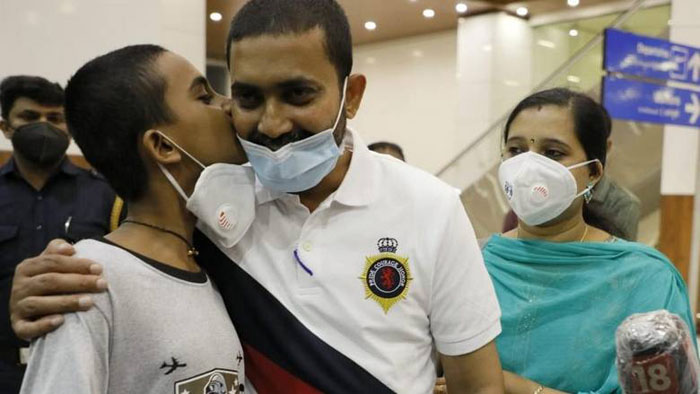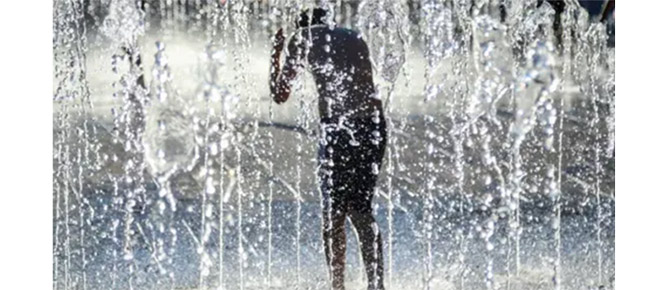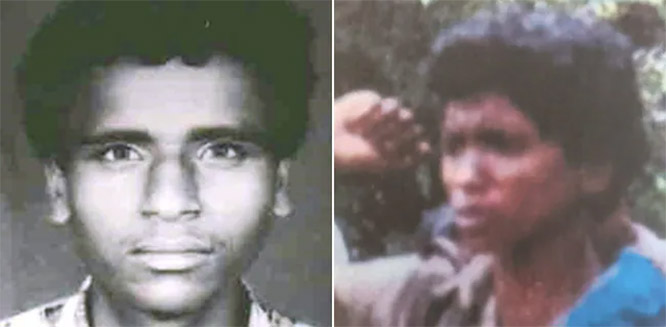
Kochi, June 9: An Indian expat on death row in the UAE has returned home after languishing in jail for almost nine years in a road accident case.
Becks Krishnan, a Keralite, faced capital punishment for causing the death of a Sudanese boy in September 2012. His release was secured following the intervention of LuLu Group chairman M.A. Yusuff Ali, who paid Dh500,000 as compensation in court.
Krishnan departed from Abu Dhabi on Tuesday night, and reached Kochi early morning on Wednesday.
“This is a second lease of life for me. I am very happy. I am back home because of Yusuff Ali. Ever since he intervened in my case, I had renewed hope in my life,” Krishnan, who hails from Thrissur district, said after landing at the Kochi International Airport.
There were emotional scenes as Krishnan’s wife Veena and son Advaith received Krishnan at the airport.
“I am grateful to Yusuff sir and family,” Veena said.
Once home, Krishnan’s mother broke down seeing her son. Even since 2012, Krishnan’s family and friends have been trying for his release from prison but without any success. The family then approached Yusuff Ali, who took up the matter, flew down the victim’s family from Sudan to Abu Dhabi for a month and held extensive discussions to arrive at a compensation amount and secure pardon for Krishnan.
Yusuff Ali pointed out the act of kindness was not following his chopper accident in April but the result of a long-drawn process involving multiple stakeholders.
“I am not trying to do ‘sadaqa’ (charity) following my chopper accident. I paid the compensation amount in January. He is a young man and has a family. You can’t measure the value of a life with money. Now he has reached home,” Yusuff Ali said.
And now Krishnan plans to find a job in Kerala and settle down there.








Comments
Add new comment